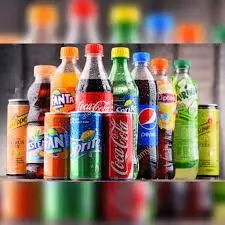- Home
- /
- Business/Economy
- /
- Forum demands FG...
Forum demands FG impose 20% excise tax on sweetened beverages

Ministries of Health in the five states of the Southeast geopolitical zone on Thursday in Enugu advocated for 20 per cent taxation on sugar-sweetened beverages (SSBs).
They declared in a communiqué issued at the end of a one-day regional stakeholders’ forum on SSBs that the taxation would reduce high sugar consumption by Nigerians.
The forum was organised by Corporate Accountability and Public Participation Africa (CAPPA), an NGO with support from a development partner, the Global Health Advocacy Incubator (GHAI).
CAPPA is a Pan-African organisation devoted to working with African communities to build partnerships and take collective social action towards the promotion and defence of their rights.
It challenges the abuse of natural resources, the environment, and people through corporate and state policies and practises.
Similarly, GHAI provides strategic support to advocates working to enact and implement laws that save lives.
It supports civil society organisations that advocate for public health policies that reduce death and disease.
Rising from the forum, the ministries lauded the decision of the Nigerian government to impose a N10 per litre excise duty on SSBs.
They noted, however, that the N10 excise duty fell short of the 20 percent of the final retail price of SSB products recommended by the WHO.
“The government should increase taxation on SSBs to achieve a 20 percent increase in the final retail price of targeted sugary drinks as recommended by WHO,’’ the communiqué read.
The forum noted that SSBs offered no nutritional value but constituted a huge public health and economic burden for the country.
The high level of sugar consumption had increased the population of obese people and also the incidence of Type 2 diabetes, cardiovascular diseases, cancer, renal problems, and other non-communicable diseases, as the forum also noted.
It recommended sustained collaboration by governments at state and federal levels to engender public awareness on the health risks of SSB consumption and the benefits of the SSB tax policy.
It also recommended that traditional and educational institutions, civil society organisations, the media, and healthcare providers, among others, be actively engaged in the campaign against SSBs.
“They should be at the forefront of correcting industry misinformation on SSB tax, and local communities must not be left out of these processes.
“The Federal Government should work in collaboration with state governments to expand the coverage of taxes to include sugar-sweetened beverages that are currently not taxed.
“There is a need for national legislation that advocates for the imposition of a pro-health tax and the need for the government to ensure healthier alternatives to SSBs are affordable and readily available.
“The Federal Government should encourage the Ministry of Agriculture to support farmers and the fresh fruit industry to grow more fruits and produce healthy drinks as replacements for unhealthy drinks.
“It should also encourage parents to prioritise what their wards consume and particularly the benefits of consuming products that do not contain too much sugar,’’ the communiqué read.



